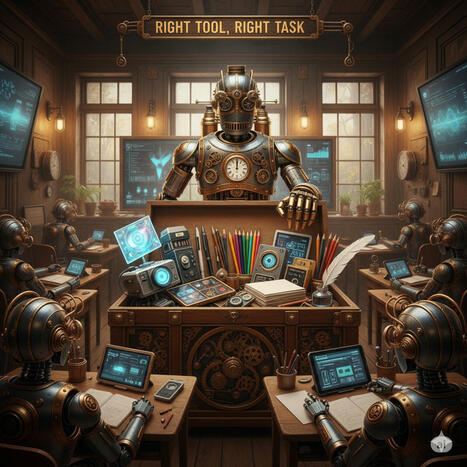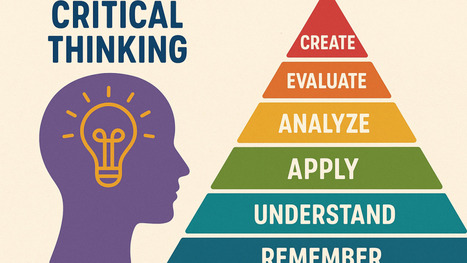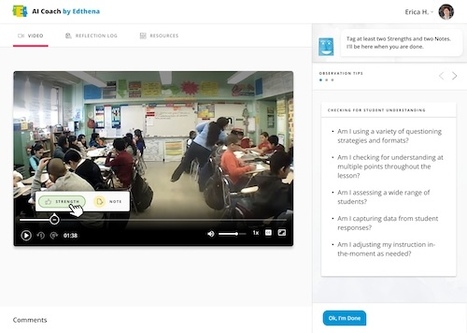 Your new post is loading...
 Your new post is loading...

|
Scooped by
Nik Peachey
July 17, 12:42 AM
|
The Manual of AI-Mediated Autonomous Teacher Development is your ultimate guide to using AI as a collaborative partner in your teaching journey. Written by Nik Peachey, an award-winning educator and expert in educational technology, this book takes you beyond generic AI-generated materials. Instead, it introduces collaborative prompting - a groundbreaking approach to professional growth through collaborative prompting - a method that transforms AI from a simple tool into an active mentor, guide, and thinking partner.
As artificial intelligence (AI) continues to transform the educational landscape, it is critical to emphasize the irreplaceability of teachers and the role of human connection in classrooms. AI presents both opportunities and challenges to teaching and learning, but it cannot substitute the many necessary social dimensions of education, such as ethical reasoning, critical thinking, and empathy. If used correctly, AI has the potential to empower teachers and ensure quality and sustainable education for all. The International Task Force on Teachers for Education 2030 developed this position paper with the goal of catalyzing deeper policy dialogue, exploring the possibilities AI holds, and advocating for the protection and re-valorization of teachers
Via Dr. Tom D'Amico (@TDOttawa)

|
Scooped by
Nik Peachey
September 7, 10:44 AM
|
Some of the most meaningful learning moments happen outside classrooms, when curiosity pulls you forward, not a syllabus. Self‑directed learning (SDL) takes ownership: you choose what, why, and how you learn. It isn’t just effective; it’s energizing, confidence‑building, and even playful. This brief essay explains why self‑directed learning works, the science behind its effectiveness, and how to structure your approach so it stays productive and enjoyable.

|
Scooped by
Nik Peachey
September 3, 5:17 AM
|
While this article focused on the broader instructional design potential of game-inspired autonomy, there is also much to gain from exploring gamification at the classroom activity level – for example, how points, challenges, and playful elements can motivate and engage learners. If you are interested in this more micro-level approach, you may see Shahrokni (2024), where I share practical ideas on incorporating gamification into teaching and learning.

|
Scooped by
Nik Peachey
August 30, 6:26 AM
|

|
Scooped by
Nik Peachey
August 26, 7:47 AM
|
How to spark AI creativity. Discover 5 unconventional AI prompting tactics to get bold, creative results. Plus 10 odd prompts to push AI beyond boring responses

|
Scooped by
Nik Peachey
August 11, 10:41 AM
|
The most sophisticated AI tutor in the world is powerless against a culture that reduces learning to grade optimisation. Conversely, even basic AI tools can be transformative in environments that prioritise understanding, growth, and authentic engagement.

|
Rescooped by
Nik Peachey
from Digital Delights
August 7, 12:46 PM
|
Emerging from a rich tapestry of educational theory, practical advice, and personal narrative, Joy-Centered Pedagogy in Higher Education
Via Ana Cristina Pratas

|
Scooped by
Nik Peachey
August 6, 6:39 AM
|
For many language learners, especially those with academic writing anxiety, the most challenging part of writing is not coming up with the right vocabulary words or checking their grammar; it is simply starting the process in the first place. The blank page can be an intimidating experience, requiring instructors to provide support and healthy solutions to avoid common pitfalls students may experience, such as overreliance on generative AI or the buildup of writing-related stress and anxiety over time. This support can look like guiding the students to break down the writing process into manageable steps through process writing and promoting tech tools that lower the barriers to starting the writing process.

|
Scooped by
Nik Peachey
July 23, 5:46 AM
|
Welcome to the July 2025 edition of the Edtech & ELT Newsletter.

|
Rescooped by
Nik Peachey
from Edumorfosis.it
July 19, 2:32 AM
|
As Artificial Intelligence (AI) increasingly influences how we access information, communicate, and make decisions, AI literacy becomes essential for navigating daily life, creating with purpose, and preparing for the future of learning and work. AI literacy equips learners and educators to understand both the risks and opportunities that AI presents, and to make meaningful and ethical decisions about its use.
Via Edumorfosis

|
Scooped by
Nik Peachey
July 16, 6:06 AM
|
ChatGPT’s Deep Research tool acts as a research assistant and can quickly find great sources on a variety of topics.

|
Scooped by
Nik Peachey
July 15, 1:54 AM
|
In the last couple of weeks I've come across a few interesting articles relating to AI that have made me think and question my opinions, so I'm sharing them here to see what you think and whether they do the same for you.
|

|
Scooped by
Nik Peachey
Today, 3:58 AM
|
The objective was to design a tool that would be accessible 24/7, provide immediate standards-based feedback, foster learner motivation, and simulate interaction close to talking with a native speaker, while remaining calibrated to the learner’s current proficiency level and aligned with the course content, including its tasks, vocabulary, and grammar.

|
Scooped by
Nik Peachey
September 12, 5:00 AM
|
Recent headlines about mobile phone bans in schools have been grabbing attention across the globe, but they're telling us a story that's far more complex than the soundbites suggest. The Economist recently published findings from a double-blind study showing that phone bans can improve performance, while Conservative politicians have jumped on the bandwagon with promises…

|
Scooped by
Nik Peachey
September 3, 5:47 AM
|
This is a 9 minute AI generated podcast that has some really useful insights and good clear explanations.

|
Scooped by
Nik Peachey
August 30, 6:33 AM
|
This toolkit has been designed to help educators and learners integrate Socratic thinking into their language learning and storytelling practices, using various AI-powered tools such as ChatGPT, NotebookLM, Socrat.ai, and Gemini. It brings together structured strategies, sample prompts, and classroom-ready templates to promote critical inquiry, reflective writing, and creative expression—instead of relying on ready-made answers.

|
Scooped by
Nik Peachey
August 30, 1:49 AM
|
When students no longer felt the need to write for my approval—or for a letter grade that could make or break their GPA—they wrote for themselves. They took risks. They admitted when they were confused. They experimented with AI tools honestly, instead of sneaking them under the table.

|
Scooped by
Nik Peachey
August 26, 3:43 AM
|
The world our students are entering is not an upgraded version of the past. It is something entirely new. We are no longer the sole producers of knowledge. But we are still the ones who bring judgment, context, and meaning to it. We are still the ones who ask why it matters, for whom, and at what cost. We are still the ones who care—and teach others to care, too.

|
Scooped by
Nik Peachey
August 7, 12:56 PM
|
The global rise in smartphone and social media use has dramatically reshaped childhood and adolescence, with algorithmically engineered digital environments increasingly influencing young people’s capabilities and functionings. This paper draws on data from the Global Mind Project to examine the population-level impacts of childhood smartphone ownership on mind health and wellbeing in young adulthood.

|
Scooped by
Nik Peachey
August 7, 6:03 AM
|
In May, I received a grant to provide my fall Composition I students with ChatGPT subscriptions. These students will meet in a computer lab, giving us space to explore these tools in a collaborative setting. With OpenAI access, students will benefit from faster responses, voice-to-text, custom learning tools, and Sora, OpenAI’s image and video generator, to deepen engagement with our readings.

|
Scooped by
Nik Peachey
July 26, 2:10 AM
|
I'm continuing my series of AI prompts that can help to promote critical thinking this week with one to help teachers design tasks based on Bloom's Taxonomy. You would be surprised how many times I've seen materials promoted as being inspired or modelled on Bloom's Taxonomy that don't come anywhere
A computerized AI coaching support model lets pre-service teachers engage in scalable, self-guided reflection for teacher preparation.
Via EDTECH@UTRGV

|
Scooped by
Nik Peachey
July 17, 12:39 AM
|
A new type of relationship is emerging in teens' lives—one that feels like connection but is powered by code. Our new research reveals that nearly three in four teens have used AI companions, and half use them regularly.

|
Scooped by
Nik Peachey
July 15, 6:52 AM
|
Discover how integrating artificial intelligence and critical thinking strategies can foster transformative learning experiences in higher education. Learn how educators can model, guide, and support students in navigating AI with intention, reflection, and integrity.
|

 Your new post is loading...
Your new post is loading...
 Your new post is loading...
Your new post is loading...













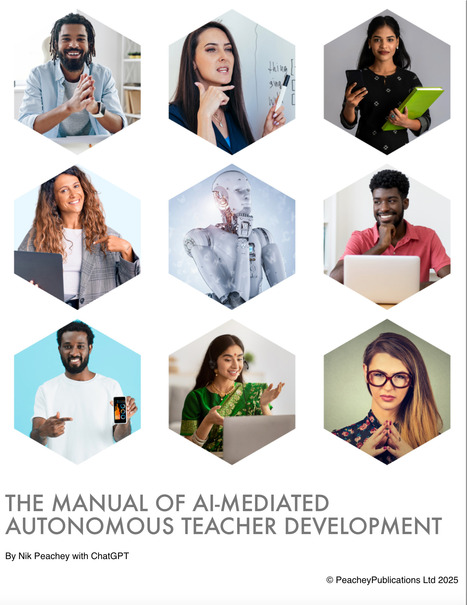


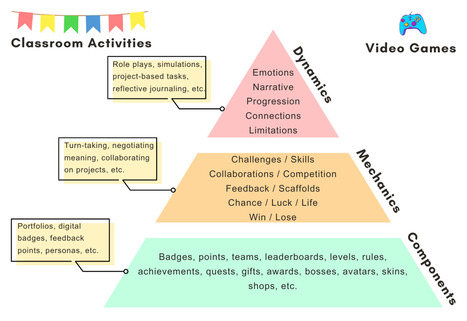


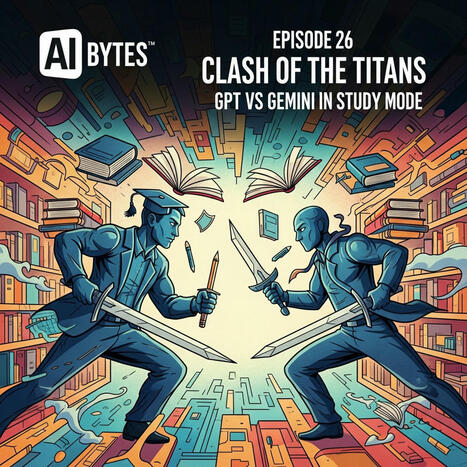

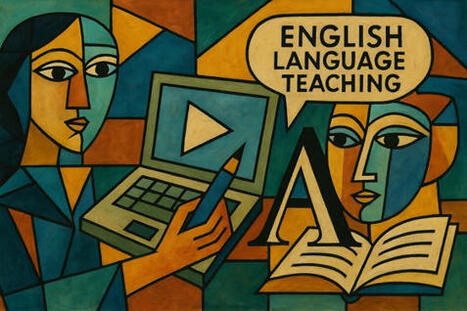
![[PDF] Empowering Learners for the Age of AI | Learning & Technology News | Scoop.it](https://img.scoop.it/NBI8B5kb7A7WyCwnc3ZzHzl72eJkfbmt4t8yenImKBVvK0kTmF0xjctABnaLJIm9)



